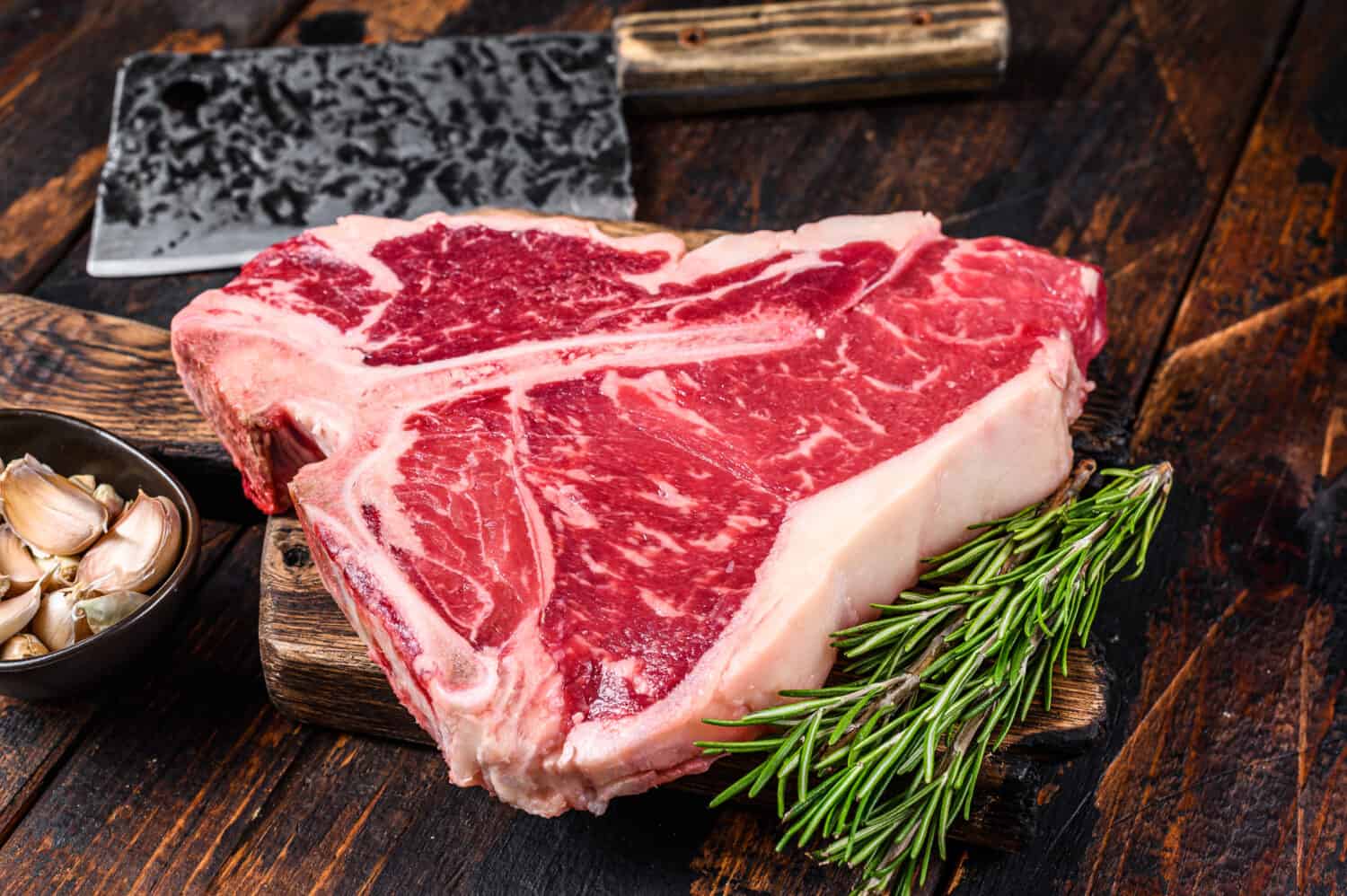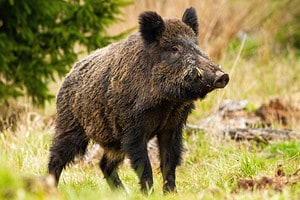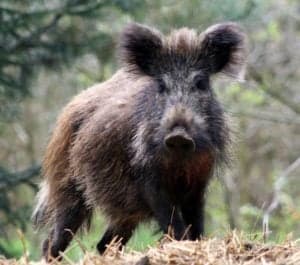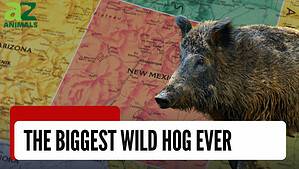With the rise of awareness regarding the treatment of animals in modern meat processing plants, the health impact of over-processed food, pollutants and microplastics in farm-raised meat, and more, people are looking for more ethical, better-tasting, and healthier alternatives.
Enter the wild boar. You might be tempted to think of wild boar as just the feral, hairy version of the pink, domesticated pig, but the differences in their meat are many and drastic. This includes their health benefits, taste, and more.
We heartily recommend this tasty, healthy, and unique meat. So, we have created this guide to help you understand why so many people swear by it as an alternative not only to grocery pork meat, but even to red meat altogether. While you might not want to replace all the meat in your diet with wild boar meat (though you might be tempted to after tasting it!), including it in your meat rotation is sure to delight you, your family, and your guests.
Here is why you should try this flavorful and healthy meat
Wild Boar Meat at a Glance
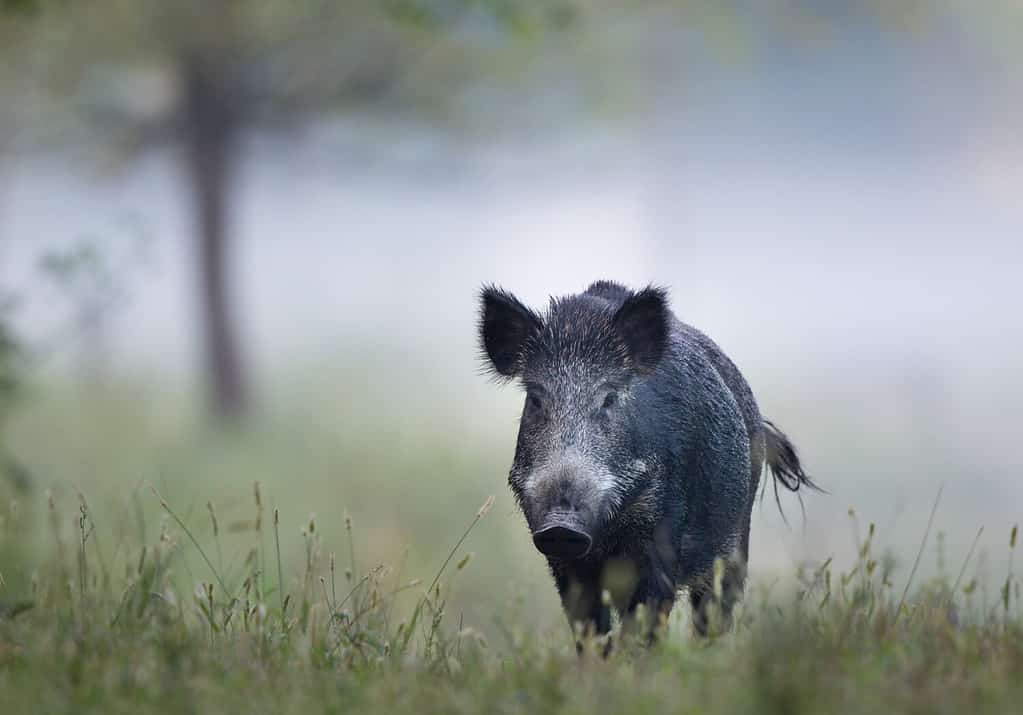
Because the wild boar live in open areas like this, their meat is much more flavorful.
©Budimir Jevtic/Shutterstock.com
Compared to other meats, wild boar is very high in protein. It has more protein per gram than pork, beef, lamb or chicken. It is also a great source of good fats and other vitamins and minerals that other meats lack.
Wild boars are, well, wild. This means they don’t suffer from a lot of the sicknesses and abuses that other farm animals are subjected to. So, they aren’t filled with steroids, antibiotics, additives, or hormones that are found in a lot of other farm meats. They lead very active and healthy lives, which means you get a healthier and tastier meat.
Additionally, due to their varied diet, wild boar meat has a very complex and unique flavor. Wild boar usually eat a variety of grasses, acorns, hickory nuts, pecans, various roots and apples and other fruit. So, don’t bit into it expecting it to taste like pork! Many wild boar connoisseurs described it as having a strong, rich, and nutty flavor. While an active animal, it is not gamey or tough and fits well as a substitute to many of your existing meat recipes. Particular favorites include roasts, smoked meats, and more. Imagine all the taste packed into each bite!
Wild Boar Meat Versus Farm-Raised Pork
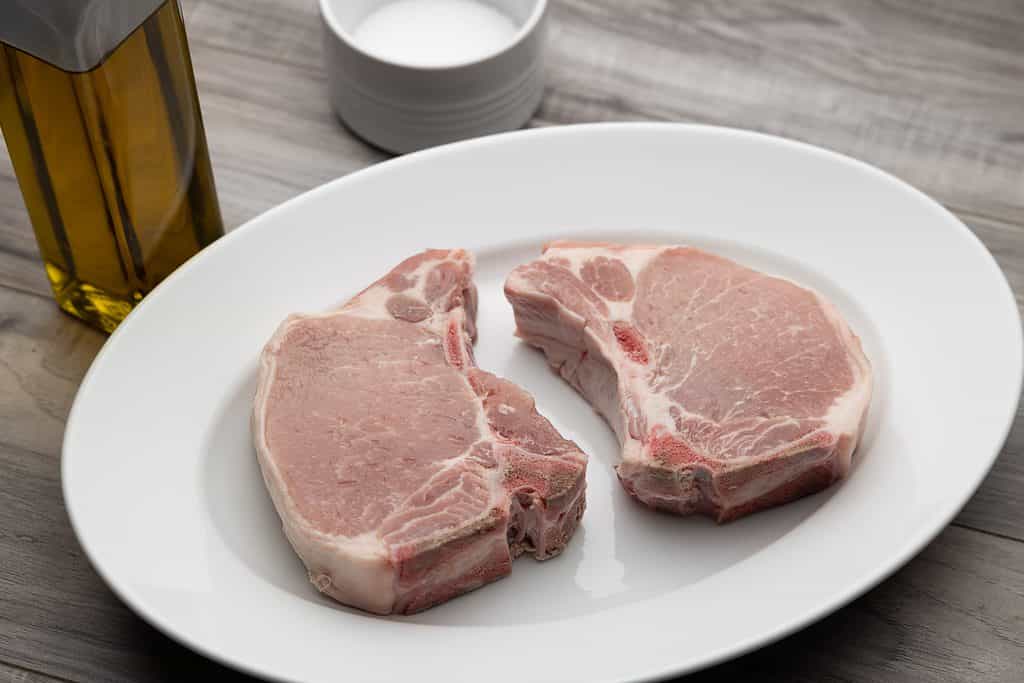
Pale, store-bought pork like this is easy to distinguish from the deep rich wild boar meat.
©BenjaminAsher/Shutterstock.com
Wild boar meat has a richer, deeper, and more complex flavor than farm-raised pigs. This reason alone is enough to convince may people to at least try wild boar meat. But there’s plenty more to it! Yet while you might reasonable expect it to resemble pork, wild boar meat is actually a dark red meat. This is a hint to its health benefits and interesting taste.
Because they aren’t kept in farms or barns, wild boars live far more active and healthier lives than farm pigs. They also eat a healthier diet. Wild boar are able to roam and eat a wider variety of foods, leading to better meat in almost every aspect. Because wild boar meat is a very lean meat due to their active lifestyle, there is very little fat, and it is very low in bad cholesterol.
Wild boar meat is a fantastic alternative to fish as it is an excellent source of fish oils without many of the issues of farm-raised fish. Also, wild boar meat is a great source of mono-saturated fats, iron, niacin, selenium, thiamine, vitamin B6, and Zinc, while being low in sodium.
Cooking Wild Boar
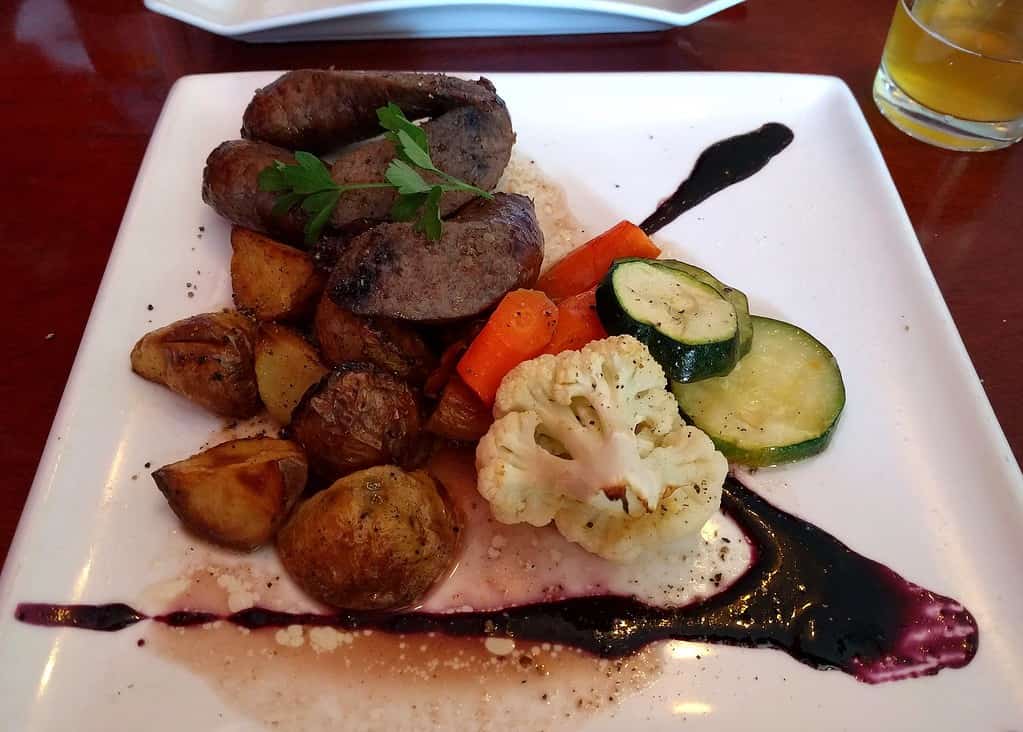
Wild boar and blueberry sausages with vegetables and blueberry coulis.
©”Wild boar and blueberry sausages with vegetables and blueberry coulis” by Ruth and Dave is licensed under CC BY 2.0. – Original / License
You probably won’t be able to find wild boar meat at your local grocery store or butcher. Unless you live near a restaurant that offers wild boar dishes, or a ranch that is allowed to raise wild boar, your best option to taste wild boar meat is online. Depending on where you buy your wild boar cuts, it might arrive frozen or chilled. So, you should make sure you know what you’re getting and how it’s being delivered before you purchase.
However, wild game meat in general is growing in popularity around the world. Many people are turning to healthier, ethically-sourced meats wither fewer additives, and restaurants are eager to meet their demands. Wild game meats like buffalo, wild boar, rabbit, venison, and others are becoming a more common sight in restaurants. So, an online search for dishes around your area might prove fruitful!
Because wild boar meat is leaner than farmed pork, you should take care when substituting it into your typical pork dishes. It is a leaner and tougher meat than pork, so you should cook it more slowly and at a lower temperature. If you overcook wild boar meat it will dry out quickly. If you order your boar meat frozen, do not defrost it in a microwave (since this will dry and toughen the meat). Instead, let it defrost naturally in your refrigerator. A few popular tips and options to prepare your wild boar cuts include the following.
Marinades work particularly well with the tough boar meat and complex flavor. An overnight marinade will tenderize your meat while adding additional savory flavor to every bite.
Wild boar meat is fantastic as chuck meat for stews, and as taco meat, and outdoor roasts and barbecues due to its lower fat content and ease of preparation.
If you plan on preparing individual cuts like a boar tenderloin or similar pieces, make sure the internal temperature of the cut reaches 140–145 degrees Fahrenheit. For most tender cuts, use a dry heat. For medium tender cuts use a combination of dry and moist heat, and for dry cuts use a moist heat. Generally, do not cook past the medium-well done stage, as that will dry out and ruin your meat.
You can safely and reliably substitute wild boar meet into any recipe that calls for wild game meats.
Other Benefits of Eating Wild Boar Meat
Wild hogs are not native to North America. European settlers introduced wild boars to North America. They have since spread as an invasive species mostly in the southern United States. Because of their large size, strength, and few predators able to take them down, they are able to out-compete many species for food in their own habitats. Wild boar are very destructive. They kill fawns and other young livestock, destroy the nests of other animals, and eat seeds and seedlings. They destroy natural environments and disrupt biomes through their violent wallowing, pollute water, and carry many diseases that people and animals may catch.
Overall, they cause over $1.5 billion each year in damage and containment operations. They damage existing farm crops and farmlands. In fact, it is illegal to possess, import, breed, or transport wild boar in the United States. It is even illegal to hunt or trap them without permission. Illegal hunting increases the demand for sport hunters to release more of them into the wild.
That is to say, by eating ethically-sourced wild boar meat, you are helping eliminate the destructive wild boar population in North America and supporting sustainable wild boar meat production. So, you can eat a healthy, delicious meal and feel good about having a positive impact.
| Meat | Calories per 100g | Protein per 100g | Cholesterol per 100g | Fat per 100g |
|---|---|---|---|---|
| Wild boar | 160g | 28.3g | 55mg | 4.38g |
| Beef (filet mignon) | 267g | 26g | 62mg | 17g |
| Chicken breast | 165g | 31g | 57mg | 4g |
| Pork loin | 242g | 27g | 71mg | 14g |
Thank you for reading! Have some feedback for us? Contact the AZ Animals editorial team.

